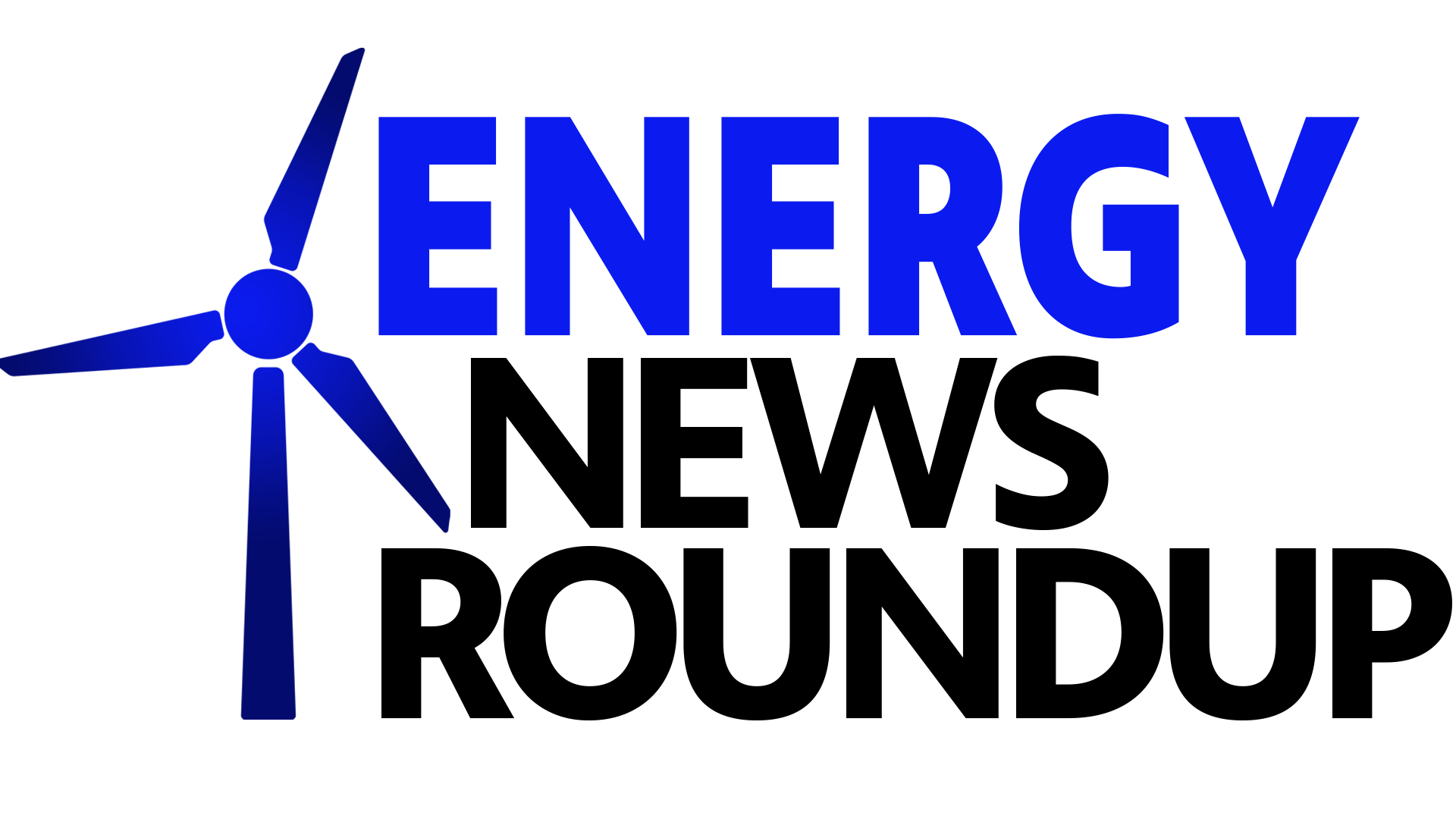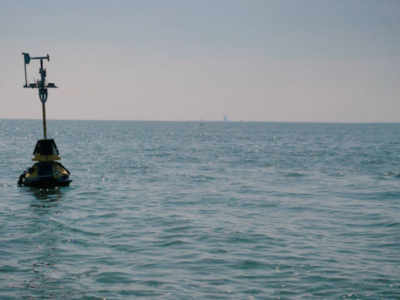
Keep up with energy-related developments in the Great Lakes area with Great Lakes Now’s biweekly headline roundup.
Click on the headline to read the full story:
Illinois
- Illinois to tackle orphaned oil, gas wells — Alton Telegraph
Illinois Gov. J.B. Pritzker announced that funding from the Infrastructure law will allow the Land of Lincoln to plug, cap and reclaim 20% of its orphaned oil and gas wells in rural communities throughout the state.
- Lake Michigan wind farm touted for Southeast Side — Chicago Sun Times
Illinois lawmakers are proposing Chicago’s first offshore wind farm, touting it as an opportunity to bring jobs to the predominantly Black and Latino South Side.
An Illinois consumer advocacy group releases an online buyer’s guide for people considering buying an electric vehicle.
- Indiana refinery to pay $2.75 million in air pollution case — Chicago Sun-Times
BP agrees to pay $2.75 million to settle a lawsuit brought by environmental groups that accused the Whiting refinery in northwestern Indiana of repeatedly violating the U.S. Clean Air Act by emitting dangerous levels of particulate pollution from 2015 to 2018.
Indiana
- Feds: Gibson County coal mine operator fined $96K for violation that risked ‘explosion’ — Courier & Press
Federal regulators fine a division of Peabody Energy $96,000 after an Indiana coal mine violated safety standards by continuing to drill despite high methane levels, risking “a catastrophic explosion.”
- AES Indiana accepts 2,500 petitions calling for the closure of Petersburg coal plant — Indiana Public Media
Climate and clean air advocates deliver 2,500 petitions to AES Indiana calling on the utility to fully retire its Petersburg coal plant which is one of the largest polluters in the state.
- Indiana plans 100 EV fast charging stations on major roadways — Indianapolis Business Journal
Indiana is preparing to install 100 electric vehicle charging stations, mostly at interstate exits, using the Infrastructure law and Volkswagen settlement funding.
- Notre Dame Dedicates Hydro Facility as Renewable Energy Efforts Grow — Environment and Energy Leader
The University of Notre Dame dedicated a hydroelectric facility, which will generate nearly 7% of the campus’ electricity needs. The plant is located along the St. Joseph River in downtown South Bend, Indiana. The 2.5-megawatt facility is expected to offset 9,700 tons of carbon dioxide a year for Notre Dame.
- Environmental organizations warn 2M tons of coal ash could spill into Lake Michigan and nearby creek — Indianapolis Recorder
Environmental groups estimate that 2 million tons of coal ash could be left behind at a northwestern Indiana coal plant with little oversight, risking a spill into Lake Michigan.
Michigan
A Michigan startup launches a rental service for low-speed, solar-powered boats meant to increase accessibility to water resources.
- Detroit coalition receives $52.2M federal grant to support auto investment, jobs in SE Michigan — CBS Detroit
A Detroit-area transportation coalition receives a $52.2 million federal grant to bolster mobility initiatives and supply chain planning as the region faces increased competition in electric and autonomous vehicles. The Detroit Regional Partnership Foundation was one of 21 awardees under the $1 billion Build Back Better Regional Challenge.
- Comcast to source renewable electricity for half of Michigan operations — Grand Rapids Business Journal
Comcast recently entered into agreements with Consumers Energy and DTE Energy to purchase wind and solar energy for its cable operations in Michigan. Together, the agreements will allow Comcast to power half of its Michigan operations with carbon-free energy, including Grand Rapids, Grandville, Wyoming, Comstock Park, Belding and Muskegon.
Michigan’s attorney general appeals a judge’s decision to keep the state’s challenge to the Line 5 pipeline in federal court.
The owner of a Michigan nuclear plant applies for a federal grant to restart the 800 MW facility, which has been closed since May. In addition to securing funding, the plant would also need power purchase agreements, fuel, a third-party operator and hundreds of workers before it could restart.
Michigan ranks among the top states for power outages in recent years as extreme weather, growing demand and aging infrastructure strain the power grid.
Grand Rapids, Michigan’s second-largest city, is seeing cost savings from a recently completed solar project that powers a water filtration and delivery plant along Lake Michigan.
Minnesota
- Line 3 activists face felony charges for attempted assisted suicide — Minnesota Reformer
Protestors say local prosecutors are ‘overcharging’ in an effort to deter exercise of free speech rights. Among them are two people charged with felony attempted assisted suicide for locking themselves to each other inside a pipe and refusing to come out despite warnings about heat stroke and lack of oxygen.
Protesters in Hubbard County, Minnesota were using a private driveway — not a county trail — to gather in opposition to the Enbridge Line 3 pipeline last year, a judge has ruled, concluding that the county was wrong to block their way.
- Want to use green energy? A twin cities nonprofit can help with the green neighbor challenge — Star Tribune
A Minnesota nonprofit that recently received $100,000 in funding from Google helps connect ratepayers with utility clean energy programs.
Minneapolis, where Target is headquartered, becomes the third U.S. city to pass an emissions-free shipping resolution that encourages carbon neutrality in shipping among corporate importers.
Ohio
Lincoln Electric in Cleveland, Ohio is taking 127 years of experience making welders and motors and channeling it toward a new industry — electric vehicle charging.
- State regulators: NOPEC must defend its right to remain an electric aggregator in Ohio — Cleveland.com
After announcing plans to lower electric bills for 550,000 customers by purging them from its rate plans, the Public Utilities Commission of Ohio directed NOPEC to show cause and explain why its certificate to do business should not be revoked by Sept. 28.
Wisconsin
- ‘We farm the sun’: For some Wisconsin dairy farmers, solar energy is a new source of income — Wisconsin Public Radio
Wisconsin dairy farmers are learning that cows and solar panels can coexist, providing a new source of income to help stabilize finances for small and mid-sized farms.
- Judge rules for tribe in Line 5 suit, says Enbridge is trespassing and must pay damages — Michigan Advance
Western District Judge William Conley in Wisconsin ruled that Enbridge is trespassing on the Bad River Band’s tribal land and should pay damages for continuing to operate its Line 5 pipeline despite a major easement expiring in 2013.
- Environmental groups ask Army Corps of Engineers for review of Line 5 reroute — Wisconsin Examiner
Debate over rerouting Line 5 is heating up. With the Bad River Band’s success in blocking the pipeline from running through their reservation, many locals along the proposed rerouted path have their own concerns. Environmental groups are calling on the U.S. Army Corps of Engineers to conduct an environmental review.
National
The historic drought plaguing the western U.S. has recharged the controversial debate about rerouting water from the Midwest to the Southwest. And the crisis is expected to worsen. Studies have predicted that by 2030, global demand for water will exceed the supply by 40 percent if current practices continue.
An analysis of federal data shows that ethanol plants produce twice as many carbon emissions per gallon of fuel capacity than oil refineries, in part the result of a history of industry-friendly federal regulation.
While visiting the North American International Auto Show in Detroit, President Biden announced $900 million in federal funding will be used to build electric vehicle charging stations in 34 states and Puerto Rico.
Catch more news at Great Lakes Now:
Energy News Roundup: New climate laws impact states, energy bill assistance in Illinois
Energy News Roundup: Michigan’s solar power increases, impact of Inflation Reduction Act on energy




